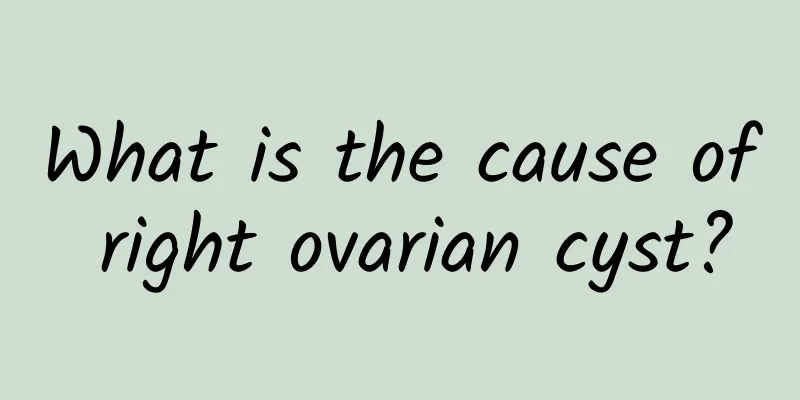Worried about high cholesterol from eating eggs? How many eggs can you eat in a day? Nutritionist You Weiming: Don’t ignore these two key points

|
Eggs are rich in nutrients. In addition to the main nutrient protein, they are also rich in lecithin, vitamins and minerals. However, there has been a rumor on the Internet that you should not eat too many eggs because you may have high cholesterol. Therefore, cholesterol has caused controversy over "how many eggs can be eaten a day". Even the national dietary guidelines of the United States and Taiwan have different recommendations. One tends to believe that eating more eggs will not increase the risk of cardiovascular disease, while the other still recommends that ordinary people only eat one egg a day. Which statement is correct? Nutritionist You Weiming has something to say! Let’s go back to the beginning of 2016, when the United States released the "2015-2020 Dietary Guidelines for Americans, 8th Edition", which removed the restrictive recommendation of a maximum daily intake of 300 mg of cholesterol in food. Many people thought that this was the lifting of the ban on egg consumption, so it’s okay to eat a few more eggs a day! Taiwan's national dietary guidelines have always been revised based on references to various medical literature and foreign practices, and the U.S. Dietary Guidelines are one of them. But just a while ago, the National Health Administration released the "2018 Daily Dietary Guidelines". In the section on eggs, in addition to upgrading its status in protein foods and changing the original food category "beans, fish, meat and eggs" to "beans, fish, eggs and meat", the "Daily Dietary Guidelines Handbook" still contains a paragraph "It is recommended that the average person (without high blood lipids, familial cardiovascular disease, fatty liver, high liver index GOT and GTP, or obesity, or those who have been specifically instructed by doctors) can eat one egg a day", which has made many people start to doubt "Can I still only eat one egg a day?" How many eggs can you eat per day? First, understand "cholesterol"After all, considering health considerations, how many eggs can a person eat per day? St. Martin's Hospital nutritionist You Weiming believes that before answering this question, we should first understand the relationship between "food cholesterol" and "blood cholesterol"! Nutritionist You Weiming explained that there are two main sources of cholesterol. The first is "endogenous cholesterol", which is the body's own production of cholesterol. About 70% to 80% of all cholesterol in our body is synthesized from the liver or small intestinal cells. The second part is "exogenous cholesterol", which is cholesterol obtained from food, accounting for about 20% to 30%. What effect does cholesterol in eggs have on the human body? Research data speaks volumesAlthough the cholesterol content in eggs is not low, with an average of about 207 mg of cholesterol in one egg, which is 0.4 times more than the average 147 mg in duck eggs, according to a report by the British Daily Mail, seven research data from 1982 to 2015 with more than 270,000 research subjects found that eating eggs has no direct relationship with the risk of cardiovascular disease, and eating them every day can reduce the chance of stroke by 12%. So, the eggs are shipped? Anything we eat? Dr. Yasuhiko Honma of the School of Medicine at Tokai University in Japan and his research team began conducting human experimental research in 1984, but they found some different answers. The research team asked the subjects to consume the cholesterol content of 3 egg yolks (750 mg) every day and observed the changes in their bodies for 2 weeks. The results showed that although the vast majority of subjects (65%) did not experience any changes in blood cholesterol, and even 44% experienced a positive effect of lower bad cholesterol and higher good cholesterol, the number of people with increased bad cholesterol was still not small, accounting for about 35% of the total subjects. Nutritionist You Weiming said that the maximum number of eggs a person can eat per day depends on "personal health status" and "cooking methods"! How many eggs can you eat per day? Don’t ignore the two key pointsNutritionist You Weiming said that the maximum number of eggs a person can eat per day depends on "personal health status" and "cooking methods"! In terms of personal health status, in principle, for healthy people without hypercholesterolemia or hyperlipidemia, it is safe to eat 2 to 3 eggs a day. On the contrary, if you have excessive total cholesterol and high blood lipids, you should still eat eggs in moderation even if they are nutritious and delicious. The new edition of the "Daily Dietary Guidelines" also clearly states that people with high blood cholesterol, a history of arterial infarction, obesity or fatty liver are advised to consume less than one egg yolk a day. [Health Supply Station]: According to current standards, the total cholesterol concentration in the blood of adults is 110 to 200 mg/dL, and the low-density lipoprotein cholesterol concentration (bad cholesterol) should not exceed 130 mg/dL. The high-density lipoprotein cholesterol concentration (good cholesterol) for men should be greater than 40 mg/dL, and the good cholesterol for women should be greater than 50 mg/dL. There are many egg dishes, but beware of the hidden dangers of delicious scrambled eggs and omelettesAs for the cooking methods, there are many variations on eggs, from simple boiled eggs, poached eggs, steamed eggs, omelettes, steamed eggs, scrambled eggs to more complicated tea eggs, preserved eggs, salted eggs, iron eggs and tri-color eggs, and each one has its own favorites. Nutritionist You Weiming reminds that high-cholesterol foods may also be accompanied by high saturated fat. Although eggs have little effect on blood cholesterol levels, if they are fried, pan-fried, or crispy cooked, such as scrambled eggs, omelettes, pan-fried eggs, etc., or if mayonnaise is added to the dishes, people may consume more trans fat and saturated fat, which in turn affects blood cholesterol levels and increases the risk of cardiovascular disease. Therefore, the public should not interpret the US statement of "lifting the cholesterol cap" arbitrarily. [Nutritionist's Tips]: Nutritionist You Weiming emphasized that a "healthy diet" with food diversity, high nutrient density and controlled food portions is always the first golden rule for preventing obesity and various chronic diseases. Even if you love eggs, don't regard eggs as the only source of protein. Beans, fish, meat and dairy products are also excellent high-quality protein foods and should be consumed in a balanced manner. For those who suffer from obesity and cholesterol diseases, it is recommended to consult a nutritionist first! |
Recommend
What medicine can cure cervical erosion quickly? 3 kinds of oral medicines and 3 kinds of external medicines for treating cervical erosion
Cervical erosion causes great harm. Patients are ...
Korean stars drink cucumber lemonade to lose weight and reduce edema? Famous doctor: The key to breaking down fat is... protein deficiency during meals
Obesity is not just about having too much fat. It...
How is adnexitis caused?
What are the common causes of adnexitis? Adnexiti...
Diagnosis of premature menopause
We must actively grasp the diagnosis and differen...
What diseases can endometriosis cause?
What diseases can endometriosis cause? Endometrio...
What factors can cause vulvar leukoplakia?
Vulvar leukoplakia mainly refers to the appearanc...
Pay attention to the hygiene of the vulva after artificial abortion
After an artificial abortion, you must pay attent...
What are the dangers of painless abortion for women?
Many women do not take good contraceptive measure...
What is the reason why my menstruation doesn’t come?
What is the reason why my menstruation doesn’t co...
Will candidiasis vaginitis turn into cervical erosion?
Will candidiasis turn into cervical erosion? Cand...
Prevention of candidal vaginitis: People with candidal vaginitis need to stop having sex
Gynecological diseases are difficult to treat bec...
Bartholin's gland cyst in adolescence
Bartholin's gland cysts in adolescence can be...
Can children get ovarian cysts?
Can children get ovarian cysts? Ovarian cysts in ...
How to treat uterine fibroids How to choose the treatment method for uterine fibroids
The treatment of uterine fibroids needs to be car...
How long does it take for hcg to return to normal after a miscarriage? Let's find out together
HCG is a female hormone produced by women during ...









